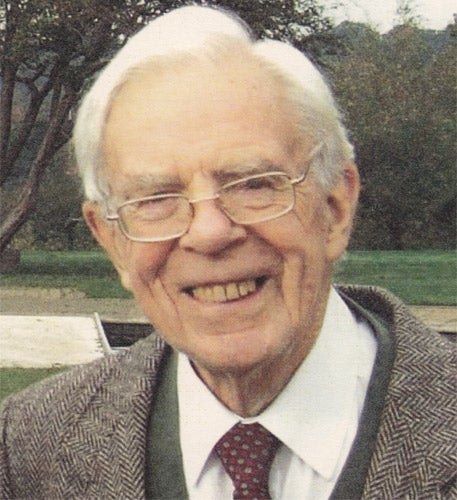Lives Remembered: Professor Kenneth Stevens

Professor Kenneth Stevens was a distinguished theoretical physicist who spent most of his career at the University of Nottingham. He began his research in magnetism at Oxford with a PhD thesis under the supervision of Professor MHL Pryce and his subsequent postdoctoral position was in Pryce's Theoretical Physics Group.
The thesis explained, in a mathematical tour de force, how exchange interactions cause "motional" narrowing of magnetic resonance lines. His landmark paper dealing with a quantum mechanical formulation of the magnetism of rare earth ions remains heavily cited nearly 60 years after its publication. The operators which he introduced to understand the properties of these materials still bear his name, the so-called "Stevens Operators".
His work was highly influential in helping experimentalists to understand paramagnetic resonance, and his joint papers with his Oxford collaborators, Sir Roger Elliott and the late Professor Brebis Bleaney, on this topic are still regularly cited by researchers. He was co-author with Professor Sir Nevill Mott (Nobel Laureate in Physics, 1977) of a paper on the band structure of transition metals and later in his career made important contributions to the problem of intermediate valence and to understanding the speed at which a quantum particle tunnels through a potential barrier.
Ken Stevens played a leading administrative role at the University of Nottingham, serving as Dean of Science (1965-1968) and Head of the Department of Physics (1975-1978). Shortly after coming to Nottingham he helped to design and commission a newbuilding which has housed the Department of Physics since 1964. Many of his PhD students and postdoctoralassistants have gained senior academic appointments in universities in the UK and abroad.
Kenneth William Harry Stevens was educated at Magdalen College School and at Jesus and Merton Colleges, Oxford, with an interruption for war service at the Admiralty on the development of radar (1942-45). From 1949 to 1953 he held research fellowships at Oxford and Harvard. He was appointed to a readership at Nottingham in 1953 and promoted to a Professor of Theoretical Physics in 1958.
In recognition of his research on the theory of magnetism, he was awarded the Maxwell Medal and Prize of the Institute of Physics in 1968. He was a member of the Commission on Magnetism of the International Union of Physics and Applied Physics from 1984 to 1987.
Throughout the 1970s and '80s he made regular visits to IBM's research laboratory in upstate New York. He retired in 1987, when he became Emeritus Professor at Nottingham. Ken excelled at tennis and was a keen hill walker and musician. His wife Audrey died in September; he is survived by his son, Richard, and daughter, Judith.
Laurence Eaves
Kenneth William Harry Stevens, physicist: born 17 September 1922; Professor of Theoretical Physics 1958–87, and Senior Research Fellow 1987–88, University of Nottingham; married 1949 Audrey Gawthrop (died 2010; one son, one daughter); died 16 July 2010.
Join our commenting forum
Join thought-provoking conversations, follow other Independent readers and see their replies
Comments
Bookmark popover
Removed from bookmarks